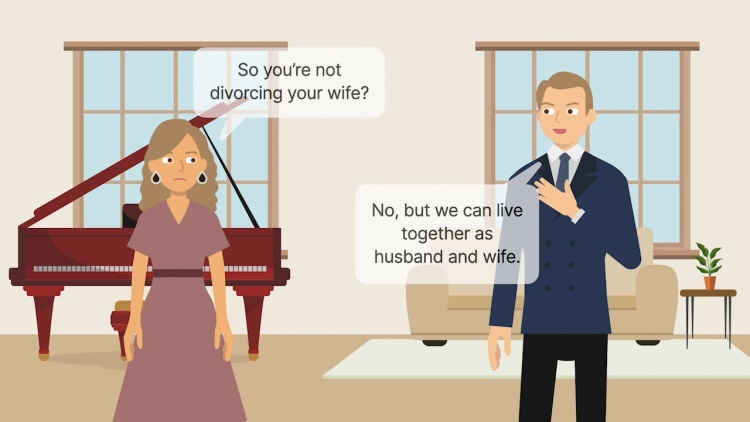In re Estate of Roccamonte
New Jersey Supreme Court
808 A.2d 838 (2002)
- Written by Anjali Bhat, JD
Facts
Mary Sopko (plaintiff) commenced a romantic affair with Arthur Roccamonte in the 1950s. At the time, both Sopko and Roccamonte were married to other people. Sopko ended the affair when Roccamonte refused to leave his wife. However, Roccamonte induced Sopko to return to him and divorce her husband. Roccamonte told Sopko his business made divorcing his wife impossible because of the social stigma, but he wanted to live with Sopko and would financially support her. Sopko lived with Roccamonte and her daughter until Roccamonte’s death in the 1990s. During that time, Sopko and Roccamonte lived as husband and wife. Roccamonte gave Sopko title to an apartment, took vacations with her, and financially supported her daughter. Roccamonte also repeatedly assured Sopko he would see that she was provided for after his death. However, Roccamonte died intestate. Sopko sued for a lump-sum award. The trial judge dismissed the complaint. Sopko appealed to the appellate division and was successful. Roccamonte’s estate (the Estate) appealed to the Supreme Court of New Jersey. The Estate argued that, unlike in a previous case of an award to an unmarried cohabitant, Sopko had not been required to provide domestic work to Roccamonte. Accordingly, the Estate argued, sexual work was the sole consideration for Roccamonte’s promise to financially support Sopko, which rendered the contract between Roccamonte and Sopko unenforceable as meretricious.
Rule of Law
Issue
Holding and Reasoning (Pressler, J.)
What to do next…
Here's why 904,000 law students have relied on our case briefs:
- Written by law professors and practitioners, not other law students. 47,100 briefs, keyed to 995 casebooks. Top-notch customer support.
- The right amount of information, includes the facts, issues, rule of law, holding and reasoning, and any concurrences and dissents.
- Access in your classes, works on your mobile and tablet. Massive library of related video lessons and high quality multiple-choice questions.
- Easy to use, uniform format for every case brief. Written in plain English, not in legalese. Our briefs summarize and simplify; they don’t just repeat the court’s language.





